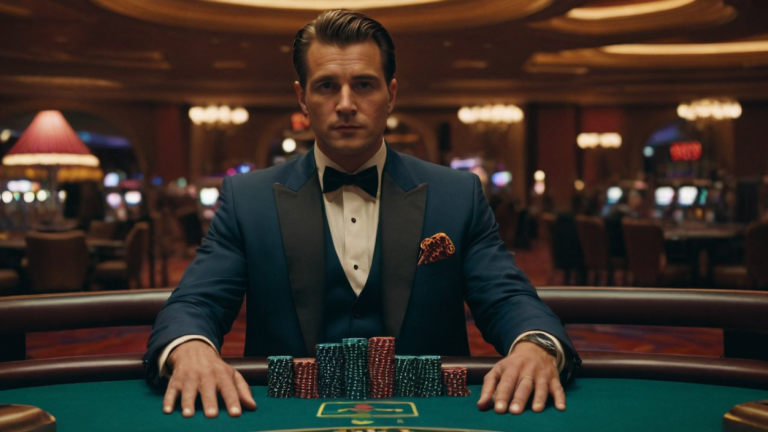Everyone dreams of walking into a casino, striking gold, and leaving with pockets full of cash. But let’s face it, casinos are designed to take your money. Still, that doesn’t mean all hope is lost. The question is not “how to win at a casino” as if there’s a single magic formula, but rather how to maximize your chances and minimize losses. This is where strategy, psychology, and, yes, a little bit of luck come into play. So, how can you win at a casino? Buckle up, because this isn’t your typical “play this, bet that” guide. Instead, we’re diving deep into the strategies and nuances you might not have heard before.
Understanding the Psychology: Casinos Know You Better Than You Think
Before stepping into the gaming floor, realize that casinos are psychological playgrounds designed to keep you spending. Everything from the layout of the casino to the scent in the air is orchestrated to encourage you to stay longer. The bright lights, the constant sound of slot machines ringing—this isn’t just ambiance; it’s a psychological trick.
Let me tell you about a time when I visited a famous Las Vegas casino. I planned to gamble for an hour. Four hours later, I was still at the roulette table, chasing my losses. Why? The lack of windows, clocks, and the seamless flow from one game to another left me completely unaware of the time. Lesson learned? Bring a watch, set time limits, and stick to them.
Play the Long Game, Not the Short One: House Edge Isn’t Your Friend
Here’s a fact you won’t find in most “how to win at a casino” guides: The longer you play, the more likely the casino will win. This is because every game in a casino has a “house edge.” In blackjack, the house edge might be as low as 0.5%, but for slot machines, it can soar up to 10%. What does this mean for you? The more spins, deals, or rolls you take, the more the mathematical advantage of the casino comes into play.
An old gambler once told me, “The key isn’t playing for hours, it’s playing smart for minutes.” He wasn’t wrong. On my next trip, I switched to blackjack—a game where skill and strategy play a big part. I focused on short, calculated sessions instead of staying glued to the table. Did I win every time? No. But I certainly left with more cash than I ever had from endless slot machine spins.
Slots, Poker, or Roulette? Knowing When and What to Play
Casinos are like a buffet of games: slots, poker, blackjack, roulette, craps, and many more. But unlike a buffet, not all dishes are created equal. To improve your chances of winning, you need to know which games to play.

The Illusion of Slot Machines
Slot machines are often the first choice for casual players. They’re colorful, flashy, and seemingly simple. But here’s the catch: slots have some of the worst odds in the casino. The payback percentage, often between 75% and 95%, means the casino makes money for every dollar you put in. It’s like paying for a meal and only getting half your order. If you want to play slots, set a tight budget, and view it as entertainment, not a moneymaking venture.
A good friend of mine once spent $200 on slot machines, only to walk away with $50. The next day, they joined a poker table, armed with patience and strategy, and walked away with $300. The difference? One game was pure chance, and the other allowed them to play against human opponents with varying skill levels.
The Art of Poker
Poker is a unique beast. Unlike slots or roulette, you’re not playing against the house—you’re playing against other players. This levels the playing field, but it also means you need to be smart, observant, and, most importantly, patient.
One time, I watched a high-stakes poker game. There was a seasoned player who folded his hand again and again, sometimes for hours. When he finally made a big move, he walked away with an enormous pot. The lesson here is simple: poker isn’t about constant action. It’s about waiting for the right moment to strike.
If you’re new to poker, start with low-stakes games, read your opponents, and don’t be afraid to fold.
Roulette: A Game of Chance, But Not Without Strategy
Roulette is one of those games that seems entirely based on luck, but seasoned players know that understanding the odds can influence your approach. There are two types of bets in roulette: inside and outside. Inside bets (betting on specific numbers) offer higher payouts but worse odds. Outside bets, like red or black, have better odds but lower payouts.
I once met a player who swore by the Martingale betting system, where you double your bet after every loss, aiming to recover losses with a single win. While it’s tempting, I watched him lose an entire bankroll in 10 minutes. Why? He hit a losing streak longer than his budget allowed.
The lesson? Roulette can be thrilling, but it’s still a game of pure chance. Always bet within your limits and avoid risky systems that promise more than they can deliver.
Bet Smarter, Not Harder: Budgeting Your Bankroll
No matter which games you play, the most important rule is this: don’t bet more than you’re willing to lose. It’s the golden rule that most gamblers forget in the heat of the moment. Setting a budget and sticking to it might sound simple, but it’s harder than it seems, especially when you’re winning.
Here’s an unconventional metaphor: think of your casino budget as a backpack full of supplies for a hiking trip. You wouldn’t use up all your supplies in the first hour of a week-long hike, right? The same principle applies to your gambling budget. Stretch it out, make it last, and don’t exhaust yourself early in the journey.
I’ve seen too many gamblers take massive risks after winning a few hands, thinking the streak will continue forever. Spoiler: it never does. Know when to walk away. One gambler I met had a rule: if he doubled his starting bankroll, he left the table, no questions asked. That strategy saved him from countless losing streaks.
The Myth of Luck: Luck Isn’t a Strategy

Most of us associate casinos with luck, but here’s an uncomfortable truth: luck is fickle, and it’s no substitute for strategy. You can be the luckiest person in the world and still lose it all if you don’t know when to stop. In many ways, casinos bank on the belief that luck will always turn around.
An acquaintance of mine once won $10,000 at a craps table in one night. But instead of leaving, he stayed and kept playing, convinced that his luck would never run out. Within hours, he had lost every penny. It wasn’t bad luck; it was a lack of discipline.
Remember, luck may bring you big wins, but strategy ensures that you keep them.
Data-Driven Approach: The Unspoken Truth of Casino Winnings
Here’s a tidbit you won’t hear from many: some players keep track of every bet they make, creating detailed logs and spreadsheets to analyze their long-term performance. It’s not something many casual gamblers do, but it’s a practice that has helped some professional players refine their strategies.
There was a man I met who played blackjack professionally. He didn’t just rely on instinct or luck; he meticulously tracked his wins, losses, and bet amounts over months. By analyzing patterns, he identified where he was making mistakes and adjusted accordingly. It’s the kind of out-of-the-box thinking that separates the casual gambler from the pros.
Winning Is About Control, Not Just Cash
At the end of the day, how to win at a casino isn’t just about walking away with bags of cash. It’s about maintaining control, playing smart, and knowing your limits. Casinos are designed to entertain and take your money, but with the right mindset, strategies, and discipline, you can walk out ahead or, at the very least, lose less.
So the next time you enter a casino, remember: the real victory isn’t just about winning money—it’s about playing the game on your terms. Don’t let the casino’s psychological tricks, the allure of flashy slots, or the temptation to chase losses pull you off course. Stick to your strategy, stay disciplined, and enjoy the ride. Because in the world of casinos, that’s the ultimate win.

